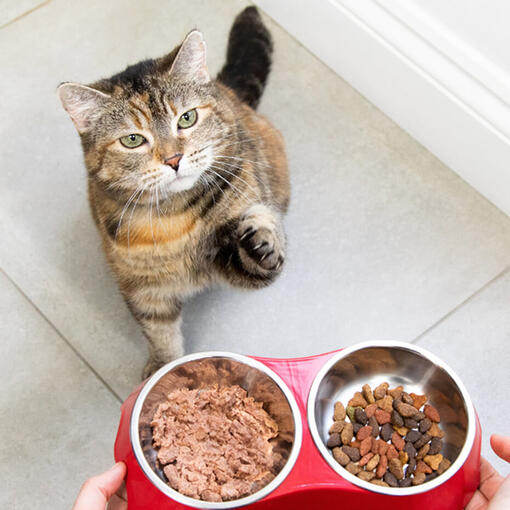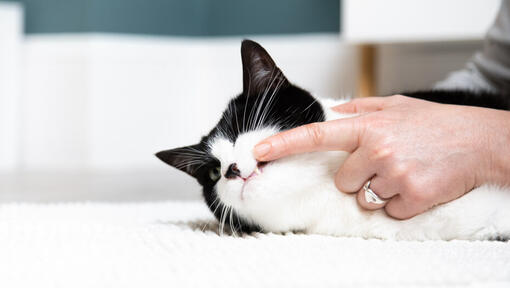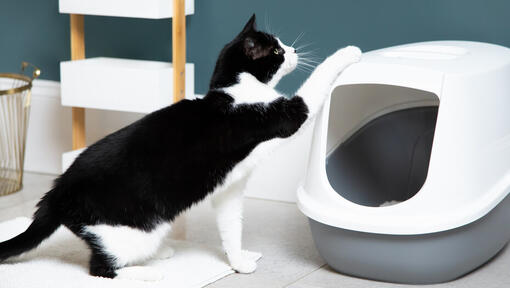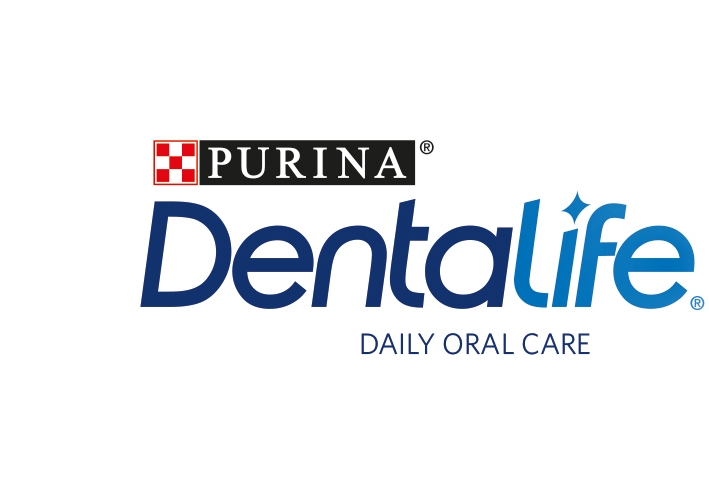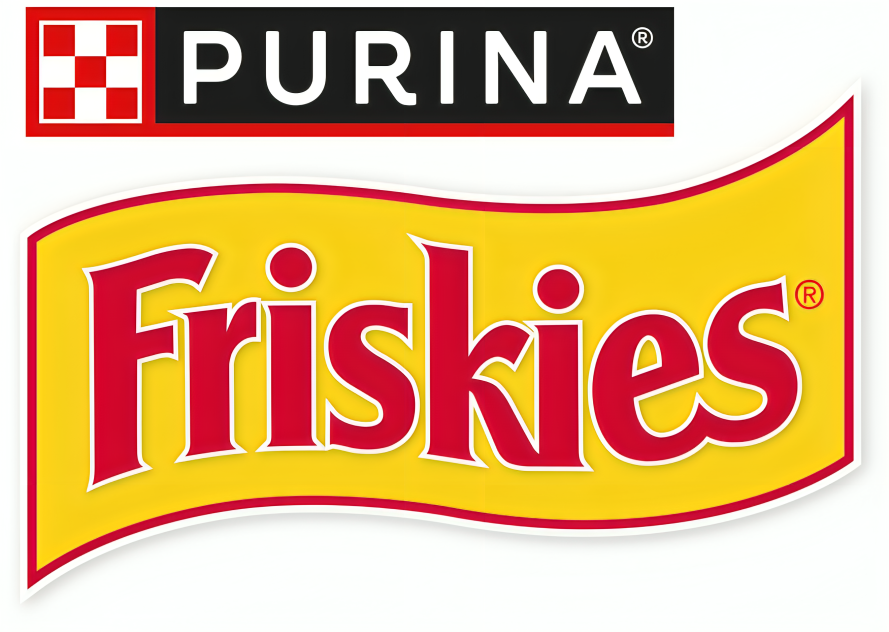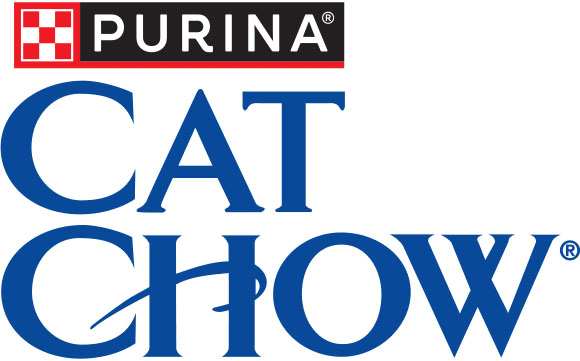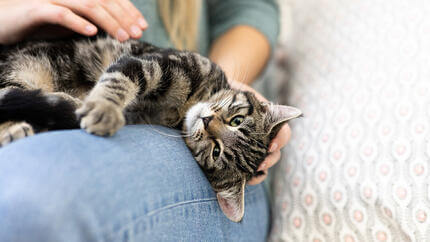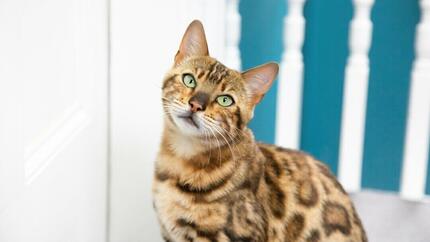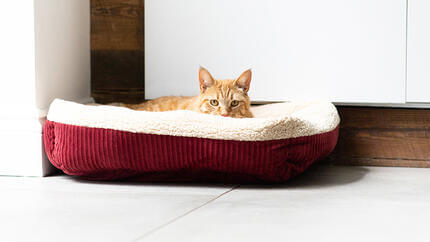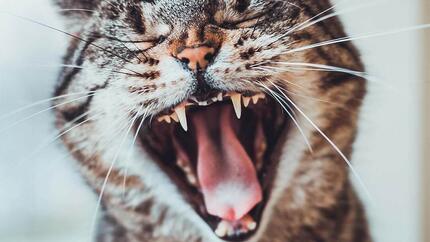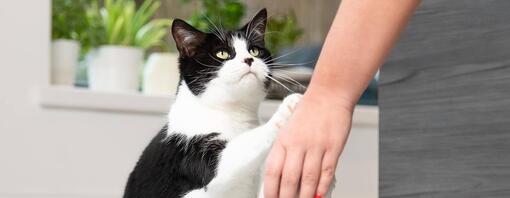
Is your cat drooling more than usual? Find out when it’s totally normal and when you need to book a visit to the vet. Read our easy guide to discover the top reasons why cats start dribbling.
Drooling might be more associated with our canine companions, but cats are known to have the occasional dribble as well. In most cases there is nothing to worry about, but in a few special instances, drooling could be a sign of a more serious issue that needs your vet’s attention.
So, if you’re asking yourself ‘why do cats dribble?’ and wondering whether you should worry, here is what you need to know.
Why do cats dribble?
They’re relaxed
As you pet or brush your cat, their kneading and purring can sometimes be accompanied by drooling. These are all signs of a happy kitty and are nothing to worry about. Your cat is simply being transported back to kittenhood and the soothing presence of their mom. So, the sudden waterfall is just your pet’s way of expressing how comfortable and relaxed they feel in your presence. If you expect dribbling every time you sit down with your cat to brush or pet them, you can have a towel ready to help you protect your clothes or sofa from the messy drool.
They’re stressed
Sometimes, the reason why cats dribble could point to the opposite state of mind. Does your cat always start to salivate abnormally just as you’re heading to the vets? This could be a sign of cat stress and anxiety. If your cat’s only trips out in the carrier are for vet visits, your pet might have connected the dots, and the simple act of putting them in a carrier in the back seat of the car is enough to trigger a stress response.
A good trick to help your cat get rid of their nerves is to get them used to the carrier by leaving it out where they can explore it at their own pace, and using treats to encourage positive associations with it. When they’re happy getting in the carrier, you can even get them in the car and back out again without ever going to the vet surgery. This will throw them off and help reduce the anxiety they’ve paired with carrier trips.
They’re fighting off dental disease
Dental disease can also be the answer to the question ‘why does my cat drool’. Whether it’s a broken tooth, infection, gingivitis or any of the other oral diseases that cause pain or discomfort, dental problems may make your cat salivate excessively.
If your cat is drooling unusually much, get in touch with the vet for an official diagnostic examination. If dental disease is at fault, this can often be easily solved and your cat can get back to their normal self.
They’ve got a foreign body
Objects lodged in your pet’s throat are another answer to the question ‘why do cats dribble’. In this case, your cat may drool because they’re about to vomit due to the object stuck in their mouth or throat, or because they find it difficult to swallow. It is important to get in touch with the vet as soon as possible, as they will be best equipped to remove the foreign body.
They’ve just ingested a poisonous substance
If you’re wondering ‘why does your cat drool’ because they’ve started dribbling all of a sudden, it’s worth thinking about any toxic substances they might have had access to recently. This includes poisonous plants in your home or garden, and chemicals you may have stored such as paints or cleaning agents. Don’t hesitate to ask your vet for help, especially if you’re not used to seeing your cat drooling so much. If you want to find out more about substances that are poisonous to cats, we’ve put together a handy list, so make sure you read our article.
They’ve injured their mouth
Trauma is another reason why your cat may be drooling more than usual. Has your cat been recently in a fight or had an accident that got them hurt? Mouth injuries can often go unnoticed and since felines are good at hiding their pain, owners need to look out for other signs. If your cat’s drooling is out of the ordinary, do carefully check for anything unusual. Our health check list can help guide you through the process. The next step is to contact your vet to discuss your findings and get your kitty the help they need.
They’re experiencing kidney failure
One of the more serious reasons why cats dribble has to do with organ failure. As kidney failure progresses, mouth ulcers can develop which can potentially lead to increased salivation. Kidneys play a vital role in keeping your cat healthy, so it’s important to know what the signs of kidney failure are so you can take swift action.
Drinking and urinating excessively, poor appetite, vomiting and lethargy are all common symptoms of this health problem and should prompt you to call your vet for advice.
Did you know that drooling can also be related to the pure joy of being near catnip, a cat’s favourite plant? If you want to find out more about cats and catnip, we’ve unravelled the magic that takes hold of a kitten in the presence of this famous plant in our fun guide.

